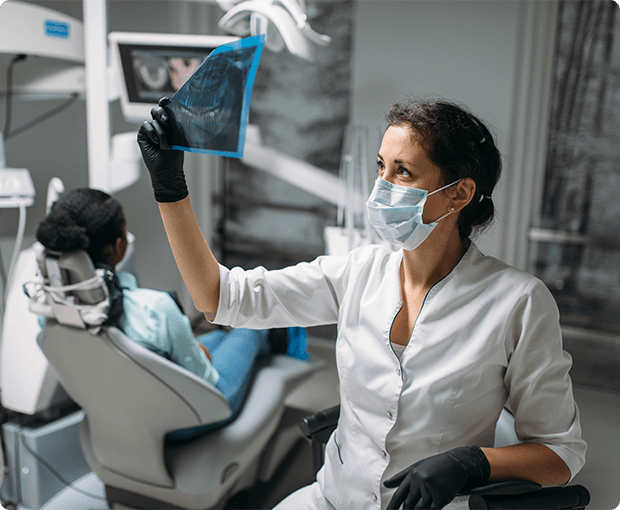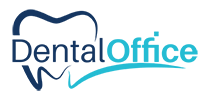A short and painless oral cancer screening can save your life.
Sadly, over 4,000 Canadians are diagnosed with oral cancer every year and many people die from late detection. 25% of these victims have no lifestyle risk factors.
It is crucial to see a dentist for a routine checkup every year because we have the knowledge and skills to look for early signs of oral cancer during these appointments. The good news is that oral cancer can be treated if it is detected early enough through oral cancer screening.
Oral cancer is when cells in the mouth grow abnormally. They begin without symptoms and originate in different areas of the mouth including the lips, tongue, salivary glands and palate. If the hygienist spots a potential symptom during your routine checkup, our oral cancer dentist can be consulted for further examination.


These are common symptoms of oral cancer:
- Red or white spots or sores in the mouth or on the lips
- A sore that bleeds easily or does not heal within two weeks
- A lump or area that seems thicker than normal
- Pain, tenderness or numbness anywhere in the mouth or on the lips
- Anyone who is over 45 years old
- Difficulty chewing, swallowing, speaking or moving the jaw or tongue
- Loose teeth
While some of these symptoms may be from other causes, it’s best to have our oral cancer dentist do a thorough examination to be sure. After your oral cancer screening, our team will help you monitor if these symptoms to see if they clear on their own.
Simple and Quick Oral Cancer Screening
Our oral cancer dentist and team can do a short and painless examination of your mouth and teeth to detect cancerous and precancerous conditions. This is the general oral cancer screening process:
- Our oral cancer dentist will first review a patient’s history
- A close examination of the mouth will be done including the gums, cheeks, below the tongue, back of the mouth and throat
- The oral cancer dentist will feel any problems in surround areas like neck, jaw, around the ear and major salivary glands
Besides a visual examination of your mouth, our experienced professionals will also feel the tissue of your mouth and throat to detect any abnormalities. If we find an area we are concerned about, we may perform a simple test like a brush test that collects cells from a suspicious lesion in the mouth to be sent to a laboratory for analysis. If this test comes back atypical or positive, we may recommend a biopsy.


How to Minimize the Risk of Oral Cancer
In addition to oral cancer screening, there are a few things you can do to minimize your risk of develop oral cancer including:
- Avoid all tobacco products
- Maintain a healthy and balanced diet
- Drink alcohol in moderation
- Limit your exposure to the sun and always wear UV-A/B-blocking sun protective lotions on your body and lips
Lifestyle and diet changes are best ways of minimizing the risk of getting oral cancer.
Self-Monitoring at Home
Between your appointments for oral cancer screening, you can do these steps to regularly monitor your mouth for any changes or potential signs of oral cancer:
Wash your hands and use a small flashlight to examine the surface of your lips
Then pull your lips out to examine the inside surfaces and your gums
Look inside both of your cheeks and feel those areas with your fingers
Look at the floor of your mouth under your tongue with the flashlight and feel the floor with your finger
Stick out your tongue and examine all of the sides with your flashlight then feel these areas with your fingers
Look at your soft palate and back of your throat with your flashlight without sticking out your tongue
By doing this regularly, you could see any changes to your mouth. If you notice anything suspicious, book an appointment for oral cancer screening or get a consultation with oral cancer dentist.
Contact Us
Contact us if you have any questions about oral cancer screening or want to book an appointment with our oral cancer dentist at phone



